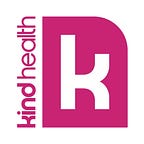For financial stability, health insurance planning should include considering investing in a Health Savings Account
Albert Pomales, CEO and Co-Founder of KindHealth
Most people don’t think much about health insurance, and who can blame them? It’s complicated, confusing, even intimidating, and deciphering it can take a lot of time in an already busy week. In addition, if your health insurance comes from your employer, you may rarely need to consider it.
However, understanding and planning health insurance costs is one of the most important steps you can take for your financial security. Setting aside money for healthcare and reducing those costs can be crucial: More than 60% of U.S. bankruptcies are from medical debt and outstanding medical bills.
While health insurance and medical costs are often one of the biggest items in a family budget, just as often they are overlooked until a family member needs care. So it’s important for your household to have a conversation and to do your homework ahead of time.
Like your family budget, annual health insurance costs have fixed costs such as monthly premiums. There also are variable costs like co-payments for visits, and deductibles that can change your out-of-pocket costs over time. You may also want additional policies that cover accidents or critical illnesses.
There is another big-picture economic consideration, however. When you select and pay for an annual health insurance plan, you might not realize that you are essentially paying ahead of time for healthcare that you may not use — and spending money that you’ll never get back. However, there are options that allow you to reduce or avoid that.
HSA and HRAs: What are they?
One such option is a Health Savings Account, otherwise known as an HSA, or a Health Reimbursement Arrangement, usually called an HRA.
An HSA is a type of savings account that lets you put aside money on a pre-tax basis to pay for medical expenses that are qualified under the HSA’s plan. However, HSA funds generally may not be used to pay premiums. An HRA is similar, but instead it is provided and funded by an employer as part of the plans it offers employees.
Both of these programs set aside money to pay for healthcare costs, reducing what you pay in advance for insurance plan features that may not be needed. In most cases, to have an HSA, you must be covered under an insurance plan with a minimum annual deductible. So although both programs are functions of a health insurance plan, they’re not an insurance plan themselves.
An HSA plan offers the account holders other financial benefits. The money you put into your HSA is considered a pre-tax contribution, or tax-deductible if purchased outside of an employer sponsored plan, reducing how much of your income is subject to taxes. While HSAs are not investments, they generate interest, roll over unused balance year over year, and once they reach a specific level, can be invested.
With an HRA provided as part of an employer’s insurance plans, tax benefits go to the employer, not the employee. They also do not accrue interest or allow for investment. But with both programs, you set aside money to pay for deductibles, copayments, coinsurance, and other expenses, and you may be able to lower your overall health care costs.
Why choose an HSA?
An HSA is a good option for those who want flexibility and prefer to avoid fixed monthly payments. You don’t need to make any monthly payments if you find yourself not using the insurance.
Of course, a person or family’s health and medical necessities are the biggest factors to consider when deciding between traditional health insurance or a plan with an HSA.
If you’re in relatively good health and foresee no major medical expenses coming up in the year, an HSA can provide significant savings. For example, if you visit a doctor only a few times a year, the costs won’t add up to the required deductible a health insurance plan requires before it begins covering expenses. In that case, it can be cheaper to set up an HSA for the minimal medical necessities you need and save the money you would have spent on a more expensive plan with more extensive coverage. You pay only the medical costs you incur, and not for doctor’s visits that you are unlikely to use.
Check out HSA plans at KindHealth
At KindHealth, we offer HSA-eligible health insurance plans, as well as all available government and private health insurance plans at the click of a button. Our platform also offers an affiliate program for health insurance agents, in which they receive a referral or partnership relationship with KindHealth’s plans and programs.
Many organizations turn to our easy-to-use site to research various health insurance plans and receive quotes quickly. The KindHealth site serves as a dynamic source to help you understand complex health insurance costs and pricing schemes, determine eligibility for government subsidies for certain insurance plans, and compare different plan features and costs.
Health insurance agents can use the KindHealth platform to inform their clients about various plans, or clients can use our available programs on their own.
